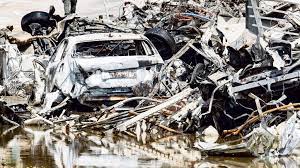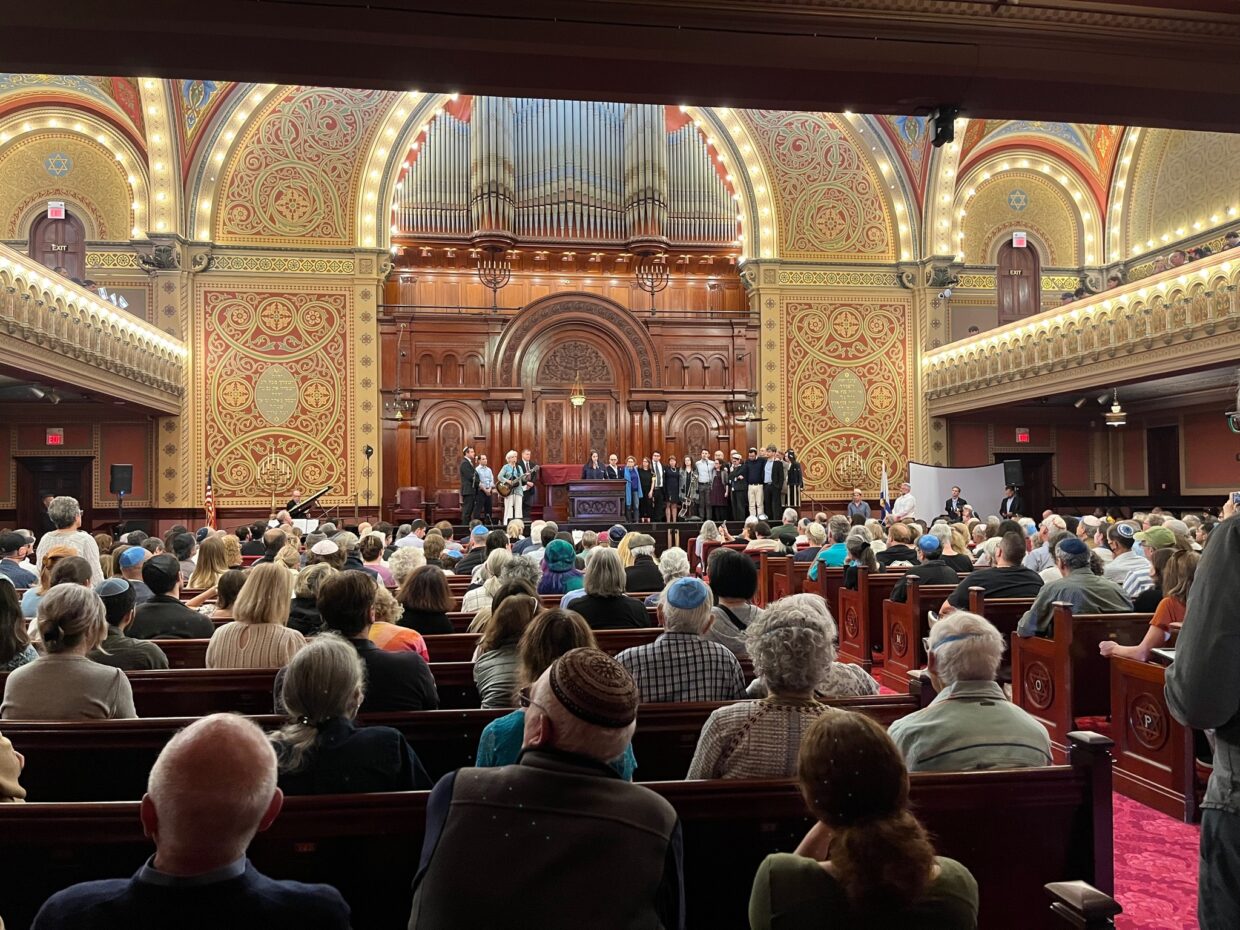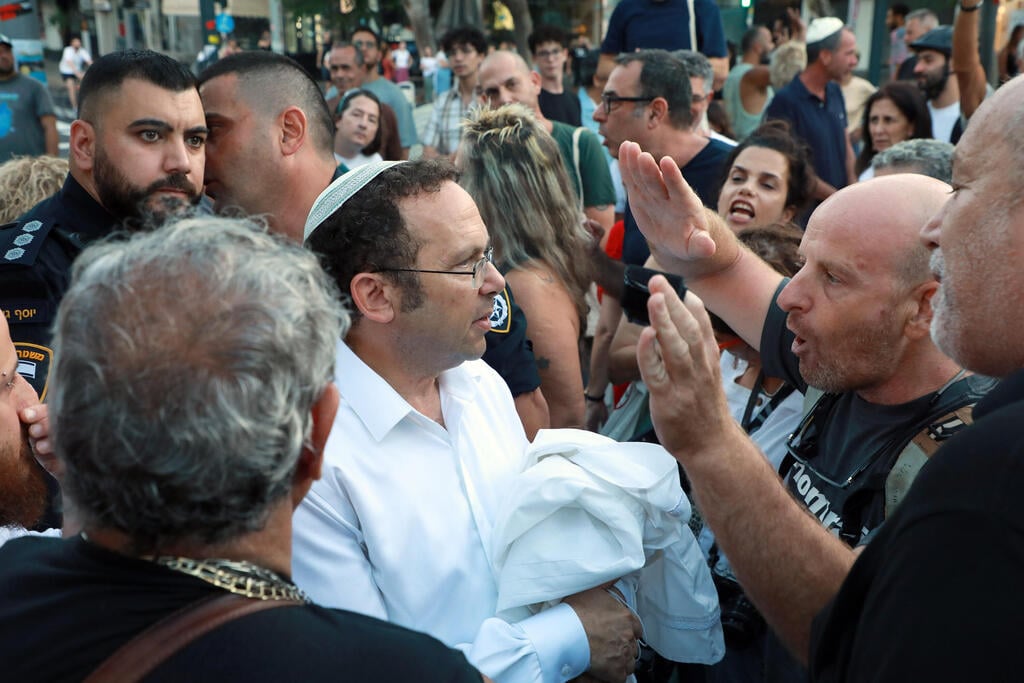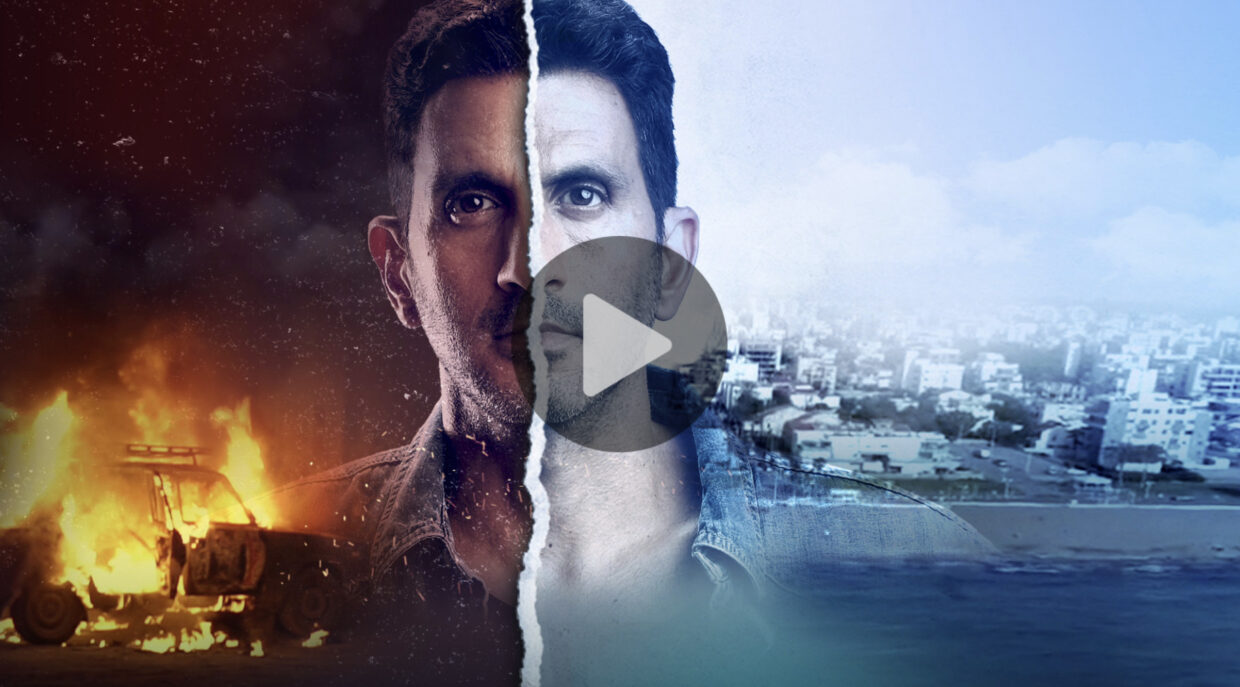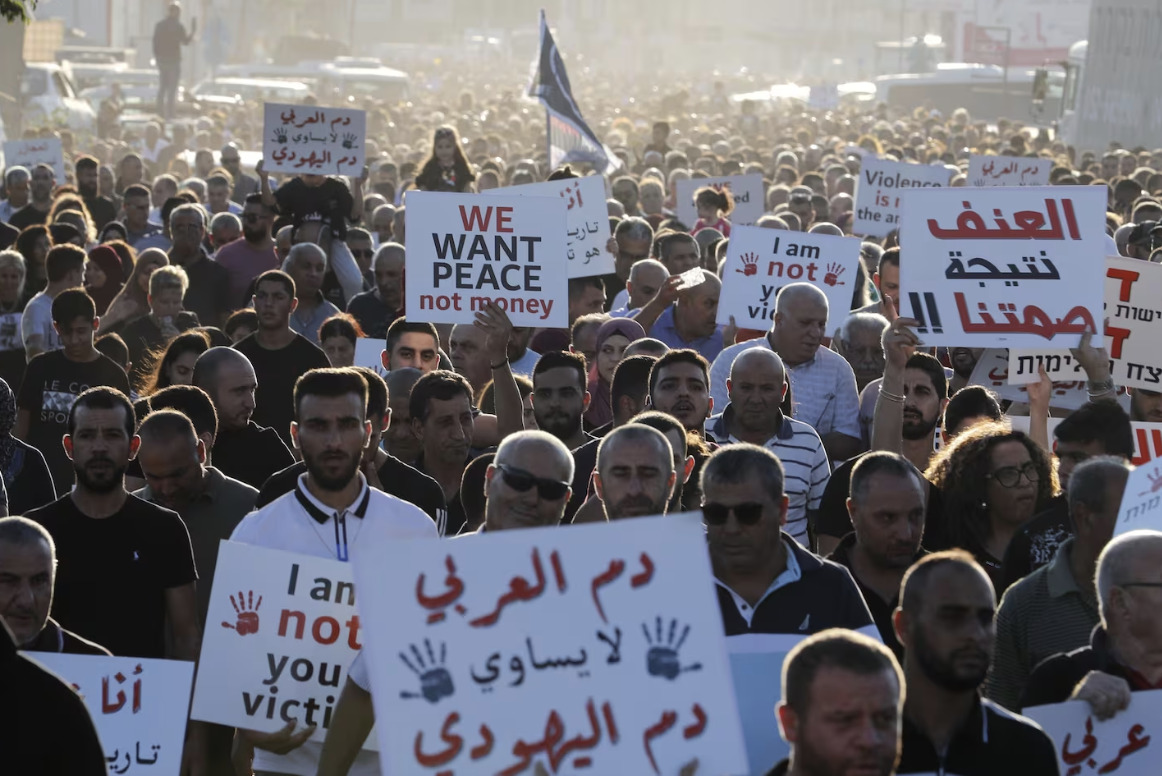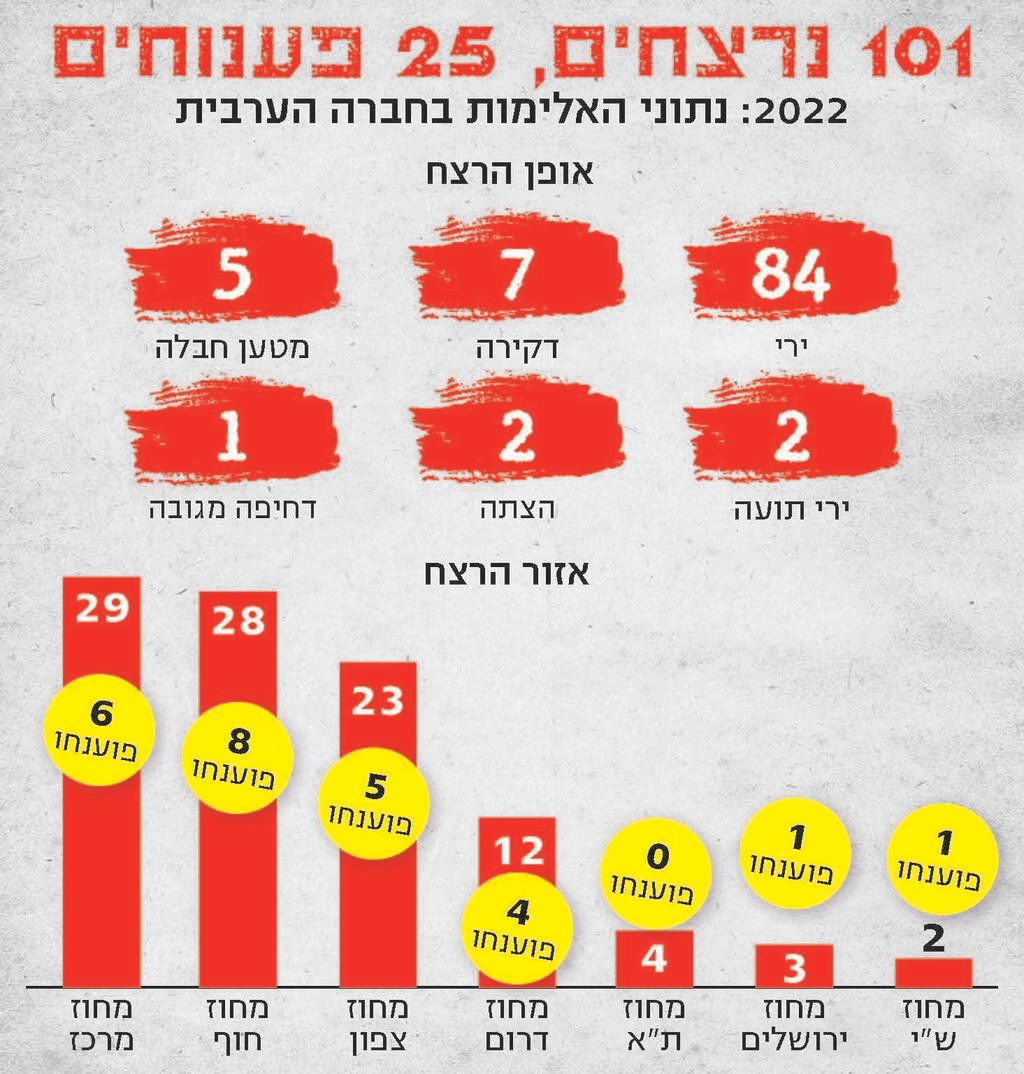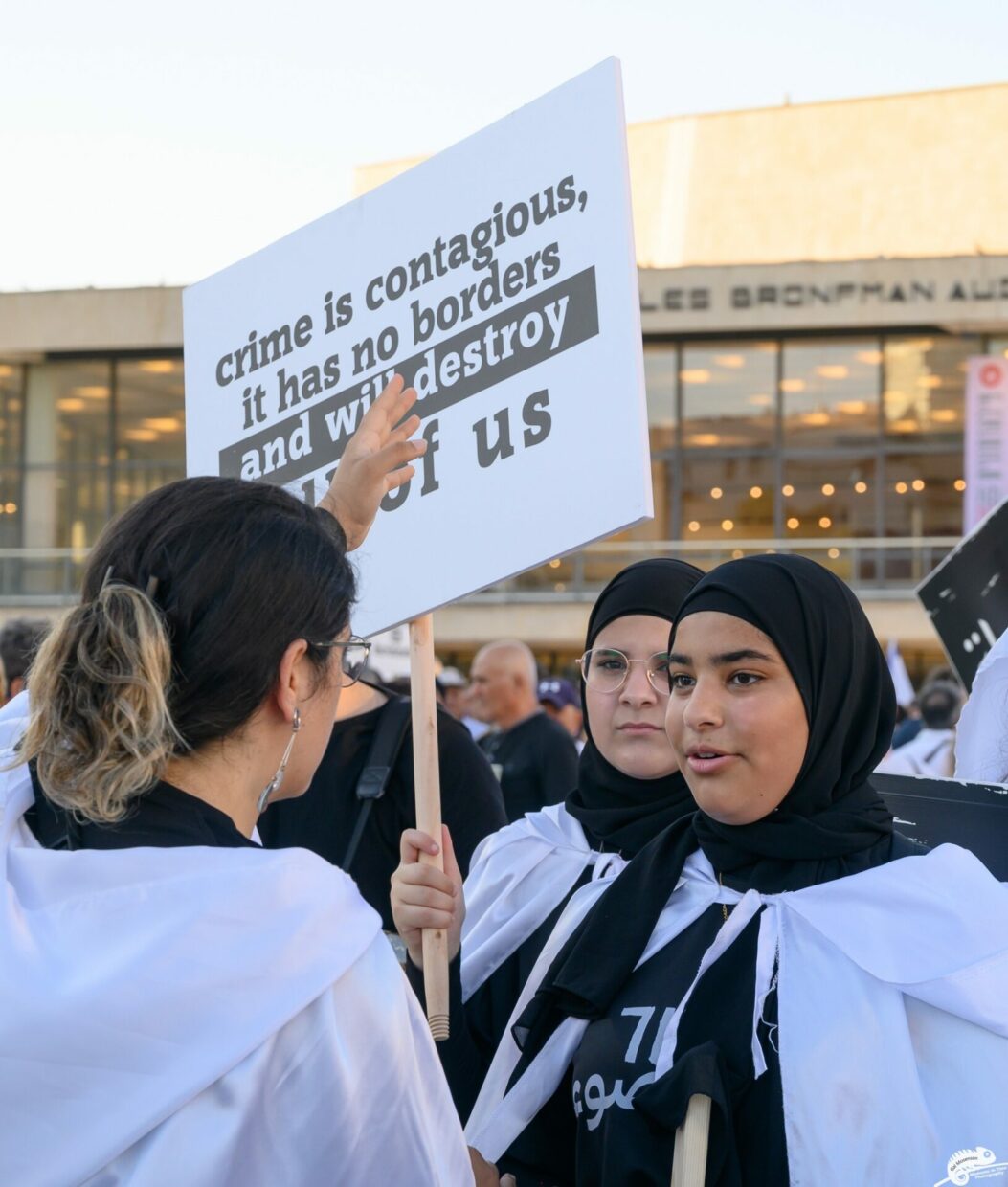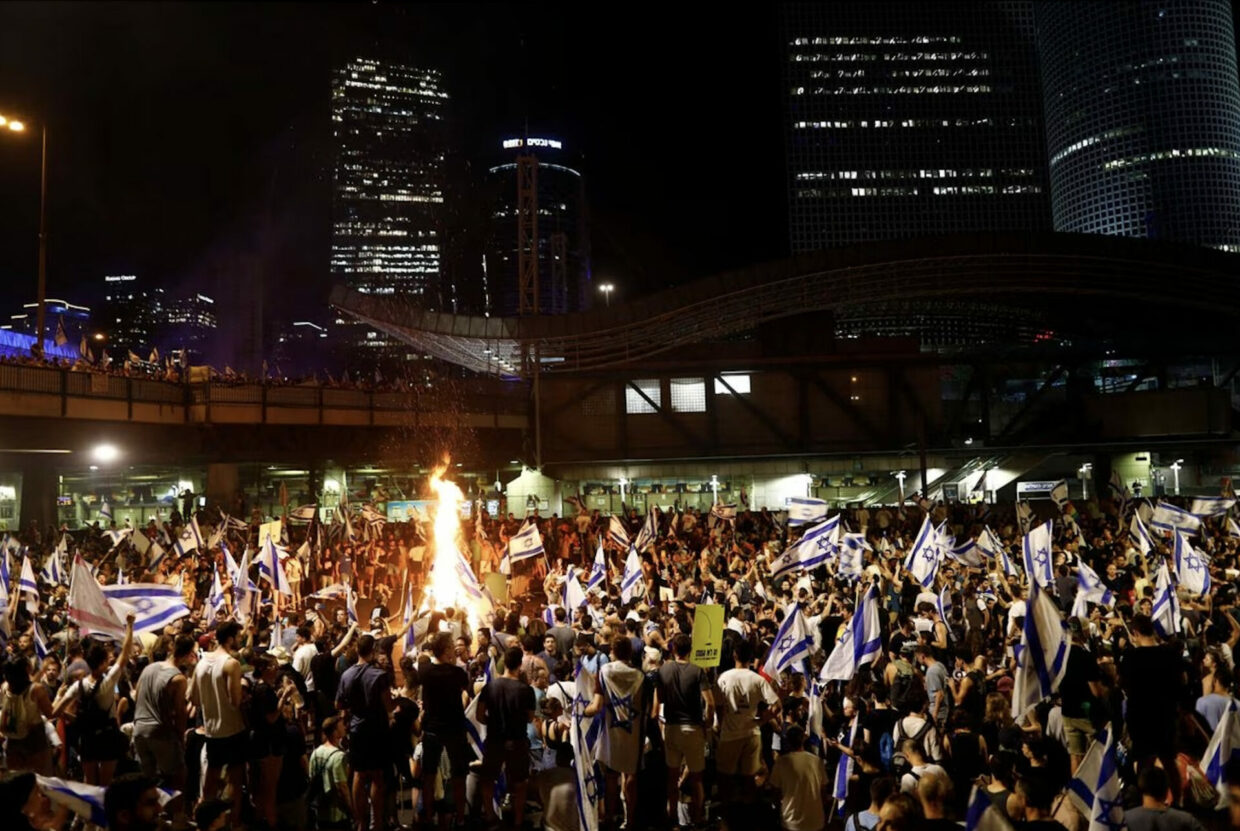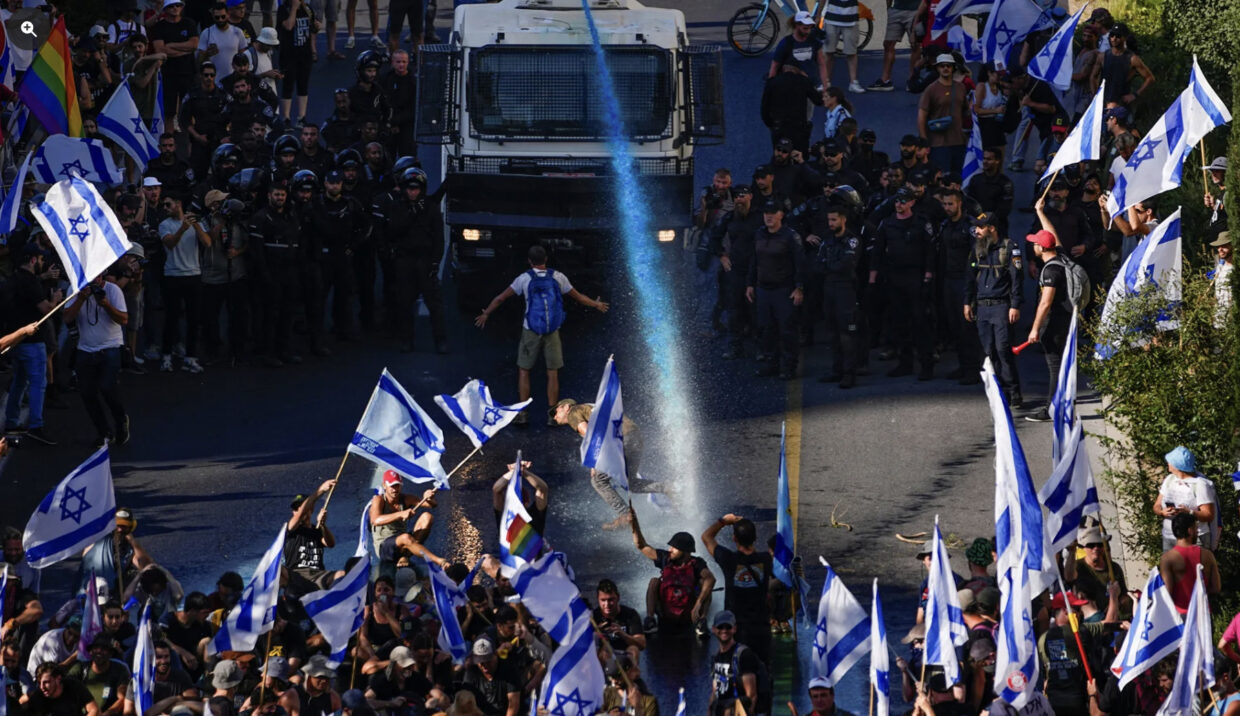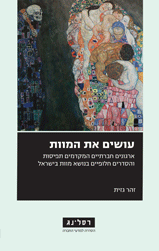It’s not news to me that my line of work is an antisemitic Petri dish. For a profession full of folks of Jewish descent, it delivers plentiful opportunities to realize how alienating and silencing the progressive conversation in the field is to Jews and especially to Israeli Jews. This stuff often masquerades as anti-Israelism or anti-Zionism, but it looks, walks and quacks like what it is. My entire career in the United States, starting with the first year at Berkeley as a grad student, was suffused with antisemitism. In 2001, fresh in the United States for grad school, I rode a bus from campus to my home, and Students for Justice in Palestine took over it and shook it. The whole bus. They took over the Wheeler building. On Holocaust Day.
That same year we brought in a new roommate from Taiwan – a PhD student – who was surprised that my nose wasn’t bigger and that I didn’t look like the people from Fiddler on the Roof.
A few months before I took my current job, in 2007, someone who would be my colleague for over a decade published an op-ed calling to expand the boycott of Israeli academics to the United States. That colleague was later asked by the person in charge of my tenure file to sit in my class and write a report of my pedagogy for the file. I was the one who had to go to that person and, politely smiling and with a friendly tone, advise him to be more cautious as they could end up with lawsuits on their hands due to carelessness. “You people are so political all the time,” was the response.
Students whom I taught using diagrams from a human rights report from B’Tzelem about outrageous torture in interrogations of Palestinians contacted the dean and the chair of my tenure committee, lying that I “trivialized Palestinian suffering with a cartoon.”
My first, award-winning book Cheap on Crime, which has nothing to do with Judaism or Israel, has lots of excellent reviews on Amazon… and one bad review. The bad review, written by a man who doesn’t know me or my opinions about Israeli politics and has not read the book–he saw an ad for a talk I gave, which had a short bio of mine–is titled “Israeli militarist on the loose.”
I’ve had to sit through countless panels in which anyone cheering Palestinian terror is met with snapped fingers and applause.
I’ve had a law review editor ask me to excise my military service from my CV, so that his friends might agree to publish my paper.
I’ve had to listen to people with graduate degrees and publications espouse ignorant, sophomoric opinions about a conflict on which they have no expertise, that were drilled into them, using the right vocabulary and getting the right nods.
I’ve seen colleagues who are Jewish authoring earnest op-eds extolling the virtues of rude and violent students to make their campuses inhospitable for their Jewish and Israeli colleagues.
I’ve had to endure idiotic explanations by fashionable anti-Zionists, many of them Jewish, who have no idea what Zionism is, are utterly unacquainted with its many strains, and cannot name a single Zionist philosopher or thinker.
I’ve had to sit through a hiring meeting and listen to a colleague who insisted that we have no one on the faculty from the Middle East. When a colleague and I said that we were from the Middle East, she explained that she meant “real Middle Easterners.”
I’ve seen people paint Israel with a broad brush stroke, as if there aren’t millions of Israelis, me included, fighting against the occupation and against the Netanyahu government. As if my friends aren’t protecting Palestinian farmers against armed settlers. As if it is impossible to believe that Jews must have a safe place on Earth and at the same time work for the human rights of Palestinians.
But today I’ve seen colleagues sink to a new low. One published an antisemitic caricature that would not be out of place in Der Stirmer (the message was that Israel is pretending to be a victim while being the aggressor. What?) Another unabashedly is advertising an event on “Palestinian resistance” in the Law & Society group. I wrote back. She doubled down, as she’s promoting her book. I would name names, but why? You know exactly who you are and you’re not ashamed of it, apparently, because you know enough of your professional connections will cheer you on. People have made very successful careers in this field out of being shameless. I doubt that this post will earn me anywhere near that acclaim, but if that means not being invited to have coffee with antisemites at a conference, I can live with the deprivation.
I shouldn’t have to explain why this is appalling, but for those who have managed to avoid the pictures of sobbing hostages, kibbutzim burned to the ground, and terrorists celebrating and throwing candy as they mangle their victims’ naked bodies, here’s my friend Tal Guttman:
For all of my non-Israeli friends, who might think this is another round of tango between Israel and the Hamas: This is much closer to 9/11 than anything we have experienced here in Israel in the last 40 or 50 years. This was an invasion. Hamas terrorists went house to house, murdering children in front of their parents, abducting 70 year old grandmothers and 12 year old schoolchildren to Gaza. 260 people were butchered in a rave. The coverage in official news channels focuses on the big buildings going down in Gaza, but I urge you to go to twitter and read the (translated if needed) testimonials, sometimes live, of people who are tweeting from their safe rooms as the terrorists are outside, telling their kids it will be all right.
Imagine that in 9/11, terrorists would invade the US, shoot 33,000 (1000) civilians dead, wound 60,000 (2000), and abduct 3000 (100) American citizens, and held them hostage in Afghanistan. Adjusting for country size, this is what happened in Israel yesterday. This is going to lead to a long, and painful war. It breaks my heart.
I despise Netanyahu, and believe his current coalition of alt-right jewish supremacist firestarters is the worst in the history of the nation and the biggest threat to Israel’s existence. However, I hear people saying how the attack yesterday was a result of recent Israeli provocation. A coordinated, large scale and surprise attack of this kind takes months to prepare and train for. This was pre-meditated, pre planned. The Israeli provocations were only an excuse. This is what pure evil looks like.
Today I’m done with professional hypocrisy, with sitting quietly in rooms where unbelievable things come out of people’s mouths. I will leave conversations that deny my humanity, respond publicly on mailing lists to people whom I emailed privately before so as not to shame them. I will not shrug off situations that evince an astonishing level of cultural and academic gaslighting. If you have ill-informed opinions that celebrate or rationalize pogroms, that explain away rape and murder of children, women, and elderly people as “resistance”, or espouse some nonsense that tries to graft this conflict onto your parochial perspectives on race in America, I am officially done with you in any professional and personal capacity. If you cannot tell the difference between resistance and mass atrocity, your humanity is so compromised that I don’t know where to even begin to educate you. Nor would you be interested in being educated.
In the days to come, this will naturally become muddied. This war will claim civilian casualties on both sides, air strikes are already devastating Gaza, and none of this is bringing the hostages any closer to home. The villains on both sides will capitalize on it. And as we all know, the more morally questionable the retaliation, the more antisemitism will flourish online. A lot of this critique will be understandable and much of it will be justifiable. But it’s telling that the backlash started *before* the retaliation, which has exposed people’s true colors.
I honestly don’t know where to go from here in this line of work. I have zero motivation or desire to work or interact with anyone whose moral compass is so compromised, and these opinions are so entrenched in my profession that I doubt I can find an environment where I feel like I can breathe. The alternative is to go back home, to a country so degraded by Jewish religious messianism and so at risk from Muslim religious messianism that I can’t in good conscience raise my son there. Our great Yiddish authors called it: there’s nowhere for Jews to put their heads down.

